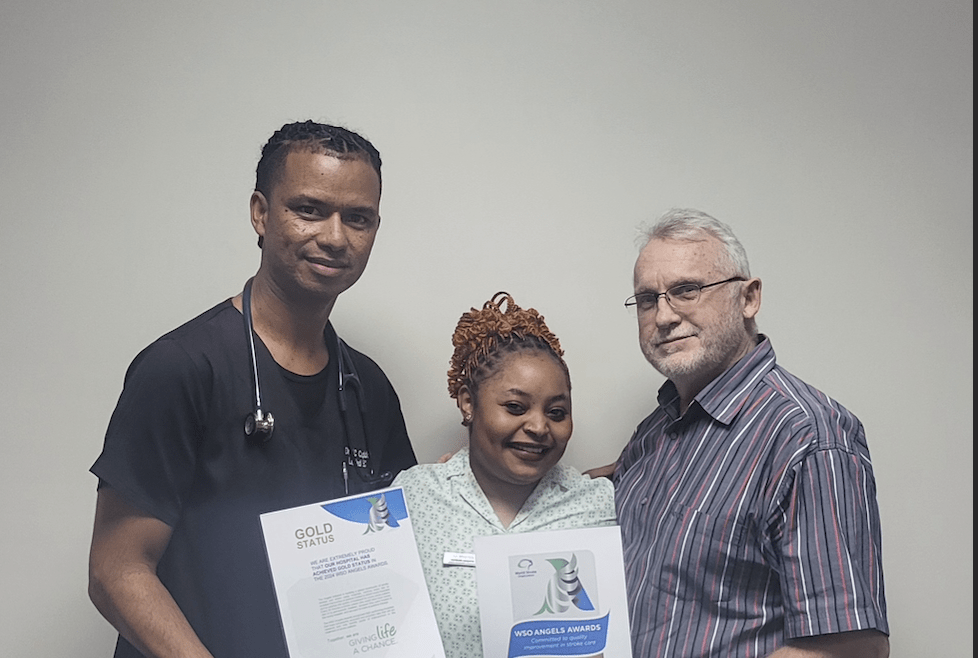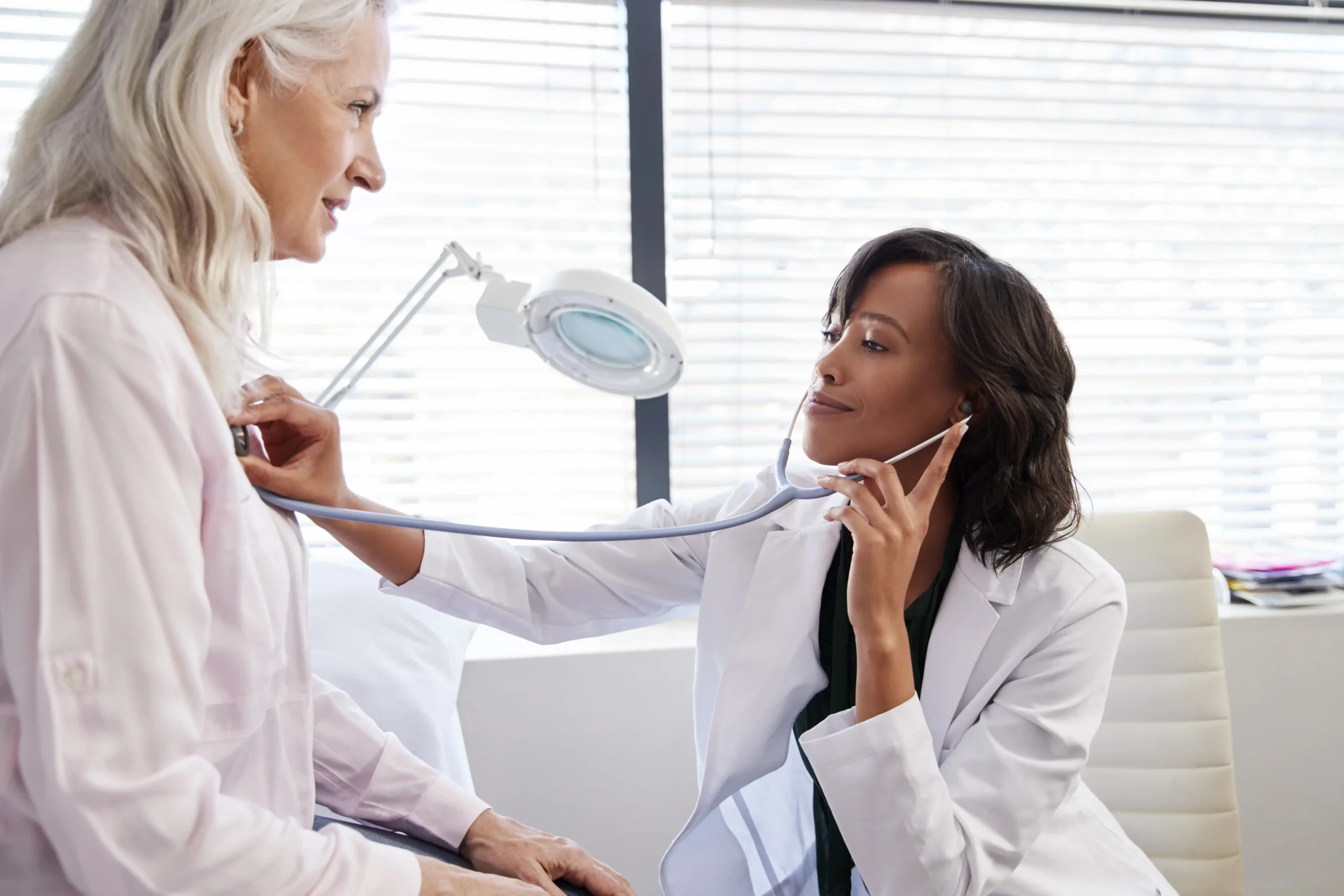Women’s Health Through the Ages: Understanding Unique Needs at Every Life Stage
Women’s health is a multifaceted system and it evolves significantly throughout the different stages of life. From adolescence to the reproductive years to menopause and beyond, each stage presents unique health challenges and needs. Addressing these needs requires a comprehensive understanding of the biological, psychological and social factors that influence women’s well-being.
Table of Contents
- Adolescence
- Young Adulthood
- Middle Adulthood
- Menopause and Beyond: Embracing Change
- Holistic Health and Well-Being
- Conclusion
- More Information
Adolescence
Adolescence, typically spanning ages 10 to 19, is a critical period for laying the foundations of good health. During this time, girls experience puberty, which is marked by the onset of menstruation and the development of secondary sexual characteristics.
Menstruation and reproductive health
Menarche, or the first menstrual period, signifies the beginning of the reproductive journey for a young woman. For many girls, this is a time of confusion and anxiety, requiring education on menstrual hygiene and the promotion of reproductive health. Access to sanitary products, a contentious issue throughout the world even now, is vital for managing this transition healthily. Understanding menstrual cycles is also essential.
Mental health
Adolescence is also a period of significant psychological development. Girls may face heightened stress due to academic pressures, social dynamics and body image issues. The risk of developing mental health disorders, such as depression and anxiety, increases during this stage. Ensuring access to mental health resources, promoting positive self-esteem and fostering supportive environments are crucial for psychological well-being.
Nutrition and physical activity
Proper nutrition and regular physical activity are vital during adolescence to support growth and development. Iron deficiency or anaemia is common among adolescent girls due to menstrual-blood loss and rapid growth. A balanced diet, rich in iron, vitamins and minerals, along with regular exercise, can help maintain overall health.
Young Adulthood
The period of young adulthood, from the late teens through the twenties and early thirties, involves establishing lifestyles and habits that can impact long-term health.
Reproductive and sexual health
Young women often become sexually active during this stage, requiring comprehensive education on sexual and reproductive health. Access to contraception, information about sexually transmitted infections (STIs), and gynaecological check-ups are important for maintaining reproductive health.
Mental health
This stage is often characterised by significant life changes, such as pursuing higher education, starting a career or forming long-term relationships. These transitions can be stressful, highlighting the need for mental health support. Strategies for managing stress, anxiety and depression are crucial, as well as promoting a work-life balance.
Physical health
Regular physical activity and a balanced diet remain critical. Young women should also be aware of the importance of maintaining a healthy weight to prevent future health problems such as cardiovascular disease and type 2 diabetes. Screening for conditions like cervical cancer through Pap smears becomes important in this stage.
Middle Adulthood
Middle adulthood, encompassing the late thirties through the fifties, is a time of increasing complexity in health needs as women balance careers, family and personal health.
Reproductive health
For many women, this period involves pregnancy and childbirth. Prenatal care is essential to monitor the health of both the mother and the baby. Postpartum care is equally important to address issues such as postpartum depression and recovery from childbirth.
Perimenopause
The transition to menopause, known as perimenopause, typically begins in the late forties. This stage can last several years and is marked by changing hormonal levels that cause symptoms like hot flushes, irregular periods and mood fluctuations. Education on managing these symptoms, through lifestyle changes or medical treatments, is imperative.
Chronic disease prevention
The risk of developing chronic diseases such as heart disease, osteoporosis and breast cancer increases in middle adulthood. Regular women’s health screenings, including mammograms and bone density tests, become vital. Adopting a heart-healthy diet, regular exercise and avoiding smoking and excessive alcohol consumption can significantly reduce the risk of chronic conditions in women.
Mental health
The demands of middle adulthood can contribute to stress and mental health issues. Women often juggle multiple roles, from professional responsibilities to caregiving for children and ageing parents. Mental health support and stress management techniques, such as mindfulness and therapy, are important.
Menopause and Beyond: Embracing Change
Menopause, typically occurring around age 51, marks the end of menstruation and reproductive capability. The post-menopausal period brings its own set of health considerations.
Menopause
The hormonal changes of menopause can cause symptoms like hot flushes, night sweats and vaginal dryness. Hormone replacement therapy (HRT) may be an option for some women, but it requires careful consideration of the benefits and risks. Non-hormonal treatments and lifestyle changes, such as regular exercise and a balanced diet, can also help manage symptoms.
Bone health
Post-menopausal women are at increased risk for osteoporosis due to the decline in oestrogen levels, which affects bone density. Calcium and vitamin D supplements, along with weight-bearing exercises, are important for maintaining bone health. Regular bone density screenings can help detect osteoporosis early.
Cardiovascular health
The risk of cardiovascular disease increases after menopause. A balanced diet, regular exercise and avoiding smoking are essential for maintaining cardiovascular health. Regular check-ups to monitor blood pressure, cholesterol levels and glucose levels are important for early detection and management of heart disease.
Mental health
Post-menopausal women may experience changes in mood and, along with that, an increased risk of depression. Staying socially active, engaging in hobbies and seeking mental health support when needed can help maintain emotional well-being.
Cancer prevention
Regular screenings for breast cancer, colorectal cancer and other cancers become even more important as women age. Staying informed about the recommended screenings and scheduling regular check-ups can lead to early detection and better outcomes.
Holistic Health and Well-Being
Throughout all stages of life, a holistic approach to health is vital. This involves considering the interplay between physical health, mental health and social factors.
Social connections
Strong social networks and supportive relationships are important for emotional well-being. Women should be encouraged to maintain friendships, engage in community activities and seek support when needed.
Healthy lifestyle choices
A balanced diet, regular physical activity, adequate sleep and avoiding harmful behaviours such as smoking and excessive alcohol consumption are fundamental for long-term health.
Preventive care
Regular women’s health screenings and checkups are crucial for early detection and prevention of health issues. Women should be proactive in seeking medical advice and staying informed about health recommendations.
Mental health awareness
Recognising the importance of mental health at every stage of life is essential. Improving access to mental health resources, reducing stigma and promoting mental health literacy can help women manage stress and emotional challenges effectively.
Conclusion
Women’s health is a lifelong journey that requires attention to changing needs at different stages. From adolescence to post-menopause, each phase presents unique challenges and opportunities for maintaining health and well-being. By understanding these needs and adopting a holistic approach to healthcare, women can navigate the complexities of each life stage with confidence and resilience. Promoting education, access to healthcare and support systems are key to ensuring that women live healthy, fulfilling lives across their entire lifespan.
More Information
For more information, please contact:
Dr. Eduardo Matediana
Discipline: Gynaecologist, Obstetrician
Hospital: Beira Private Hospital
Telephone: 258 845 021 970
















